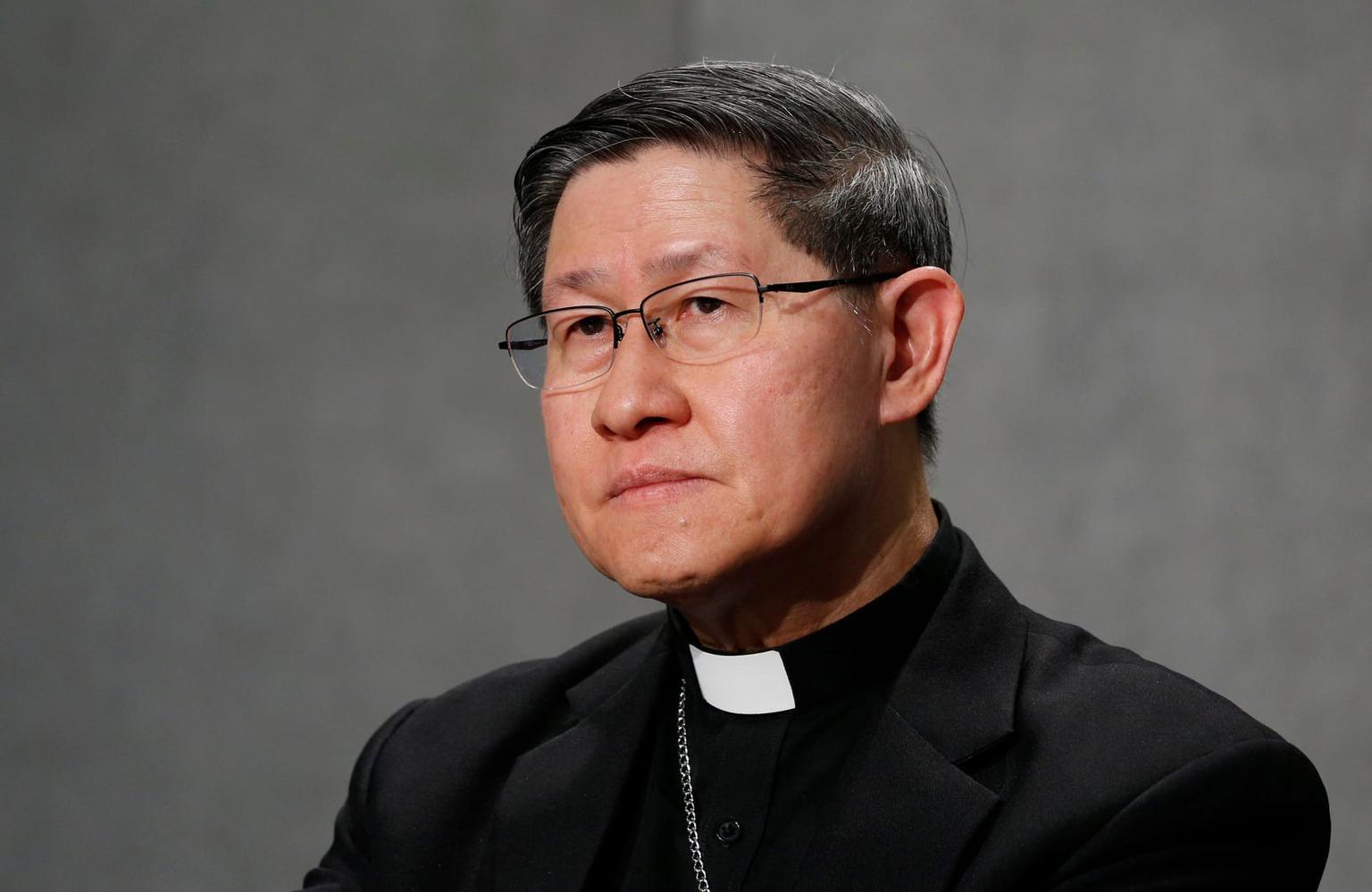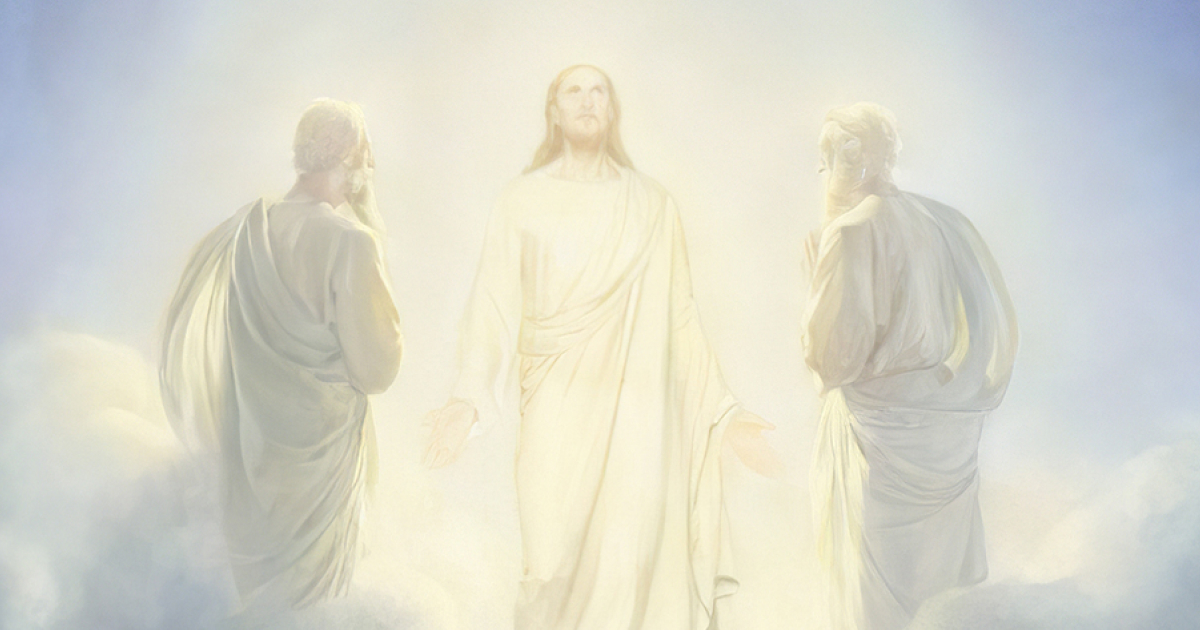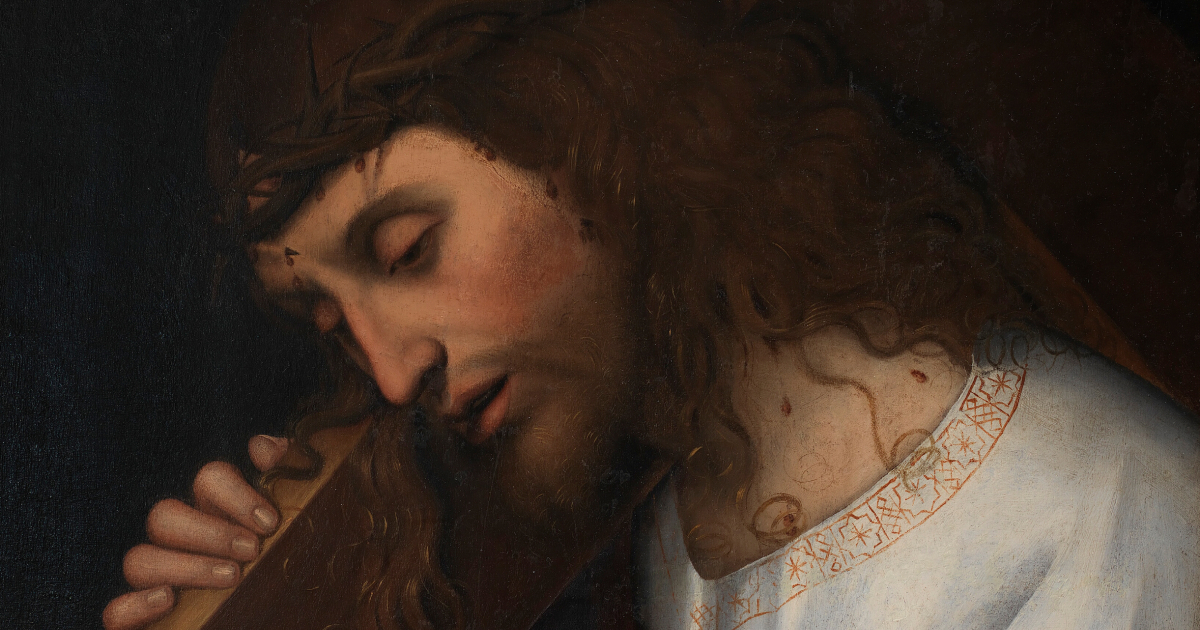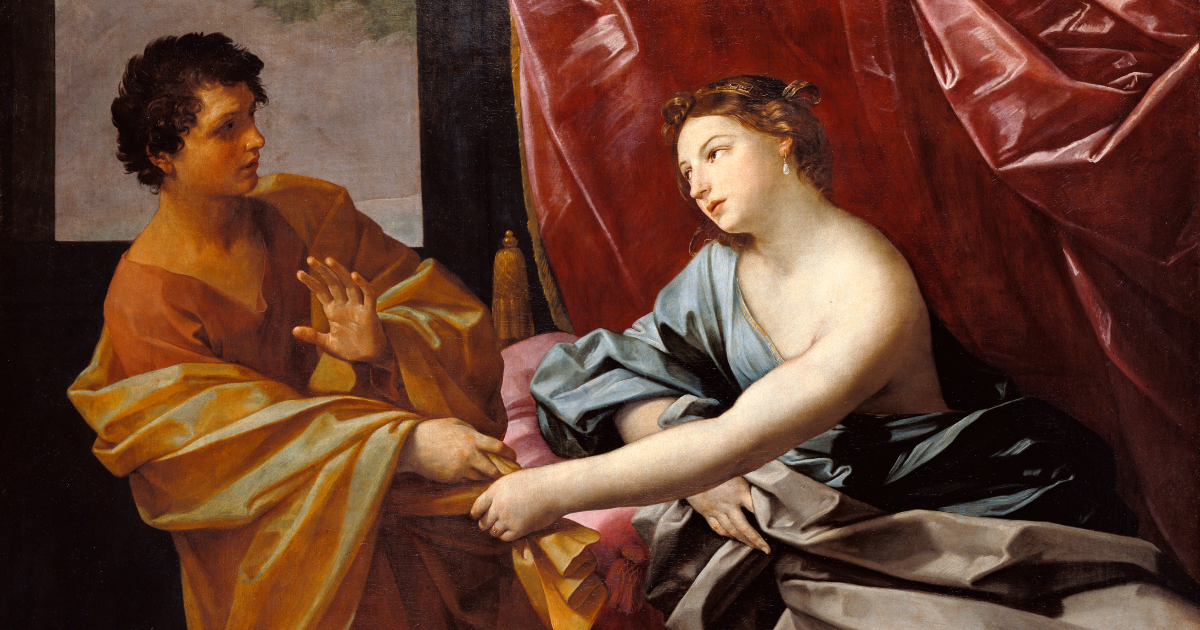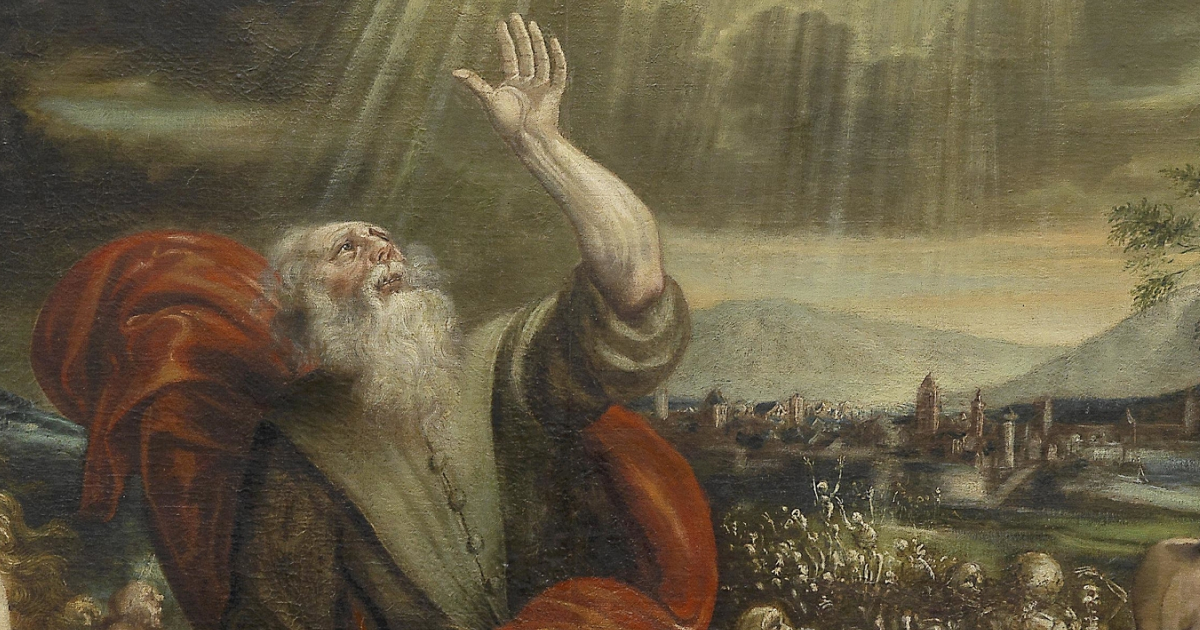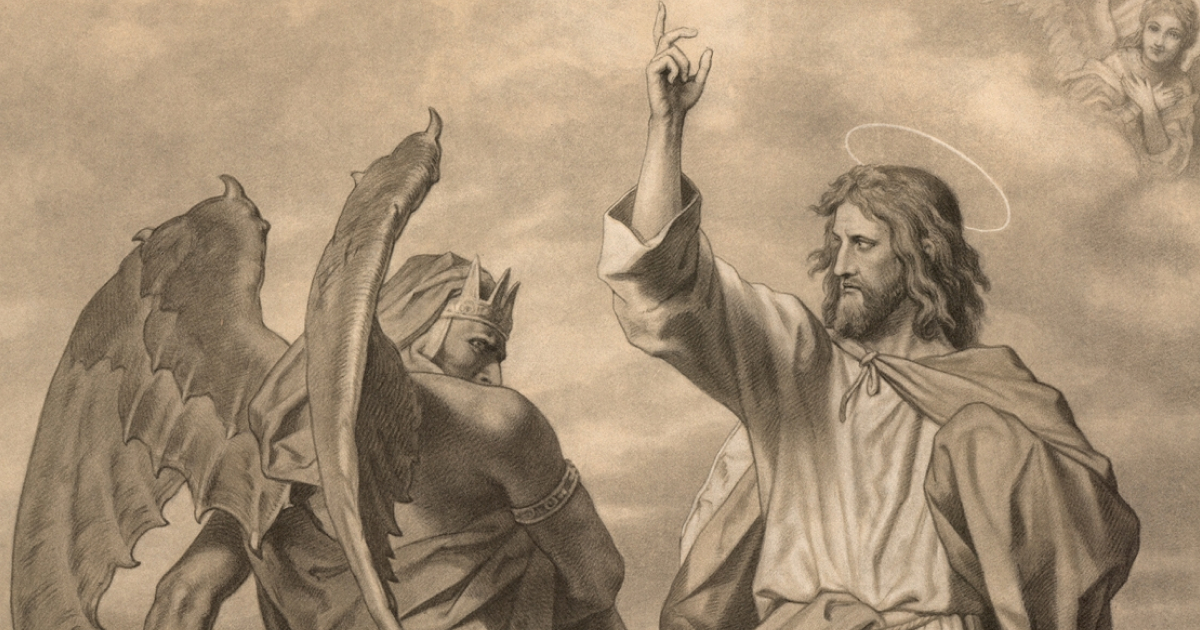NEW YORK — In what the head of the United States Conference of Catholic Bishops (USCCB) is calling a “gift,” Filipino Cardinal Luis Tagle will serve as Pope Francis’s special envoy to the National Eucharistic Congress this summer.
According to an announcement on 18 May, Tagle, who holds a prominent role in the Holy See’s Dicastery for Evangelisation, will not only visit the Congress but celebrate its closing Mass on 21 July.
“ gift to the Eucharistic Congress,” Archbishop Timothy Broglio of the Archdiocese for the Military Services and the head of the USCCB said in the 18 May statement. “ deep passion for apostolic mission rooted in the Eucharist is sure to have an inspirational impact on everyone attending the Congress.”
The National Eucharistic Congress is a part of the US bishops three-year National Eucharistic Revival initiative. Launched back in 2022, the initiative is billed by those who have organised it as “critical to rekindling a living faith in the hearts of Catholics across America”, and “unleashing a new missionary chapter at this pivotal moment in Church history".
The initiative started at the diocesan level, before moving to the parish level over the past year. This week, designated pilgrims will set off on four separate 6,500-plus mile pilgrimages to Indianapolis, where they will converge to kickoff the congress.
From 17-21 July, the American bishops expect tens-of-thousands of Catholics to descend upon Indianapolis, Indiana, for the National Eucharistic Congress. A spokesperson for the congress recently told Crux that they have sold north of 30,000 five-day passes.
Tagle, 66, is the Pro-Prefect of the Section for the First Evangelisation of the Holy See’s Dicastery for Evangelisation. Once considered a top contender for the papacy, Tagle is seen as sharp and charismatic, with a strong ability to reach people, especially those on the peripheries.
Broglio also noted in his statement that Tagle knows the United States well, having earned a doctorate in theology at the Catholic University of America in 1991.
The final Mass of the congress that Tagle will celebrate will likely bring together an excess of 50,000 Catholics at Lucas Oil Stadium, home of the Indianapolis Colts.
The National Eucharistic Congress — the 10th, and first in 83 years — kicks off the final year of the revival initiative, a “year of missionary sending.”
“The Congress will give public witness to the Church’s core identity rooted in the Eucharist, and we pray that it will inspire a renewed sense of mission as we live out the gifts of unity and charity,” Broglio said. “May it be the catalyst for a continued deepening of our faith in the Real Presence.”
The pilgrimages that started toward Indianapolis will continue through the Diocese of Bridgeport to the Archdiocese of New York and Diocese of Brooklyn. Along the way to Indianapolis the pilgrims will also pass through Catholic dioceses in New Jersey, Pennsylvania, Virginia and Ohio.
“The great event of the pilgrimage itself, and the opportunity for people to participate in it across the state of Connecticut and then into New York is really the best in terms of what the whole thing is about, which is a pilgrimage in spirit, in prayer with the Blessed Sacrament, into various churches for the celebration of the Mass, and moving forward and people experiencing that along the way,” said Archbishop Christopher Coyne of the Hartford archdiocese, which is serving as the kickoff point for the eastern arm of the National Eucharistic Pilgrimage to Indianapolis.
Coyne emphasised that follow-through after the National Eucharistic Congress is essential for the revival initiative to succeed. He said the revival will only work if the congress doesn’t become a moment of closure or ending to the initiative, but a moment of beginning for a new missionary zeal in the United States.
“I don’t see the revival as an end in itself,” Coyne said. “It’s a wonderful gathering in July, but it’s going to work post-revival if we see it as a Eucharistic Pentecost moment in which we come together in Indianapolis and we’re lit with the fire of the love of the Eucharist, of the love of the Church, in the power of the Holy Spirit, and we leave and then try to intentionally move forward in spreading the good news.”
Coyne also noted that the revival initiative serves a shift in the US Catholic Church that he’s already begun to see take shape in the Archdiocese of Hartford: a shift from Catholicism in the cultural sense – the faith connected with a person’s culture, neighbourhood, etc. – to a Catholicism focused on discipleship.
“We have real intentional disciples in our churches now, and they firmly believe in the teaching of the Church, and they firmly believe in what we hold dear as Catholics and what we need to do within our society in terms of offering them salvation and teaching, and they’re strong in that.”
Coyne added that as that call to discipleship becomes stronger and stronger, potentially inspiring more people to join the Church for the first time, or come back to the Church after a long absence, it’ll be important to make sure those people have a quality Mass to participate in. In that sense, he said the national eucharistic revival is also a call for the archdiocese to reinvigorate the Sunday Mass.
“I also see this as a call for us to revive the celebration of Sunday Mass in my parishes here in Hartford in terms of good, quality, celebration involving good presiding, good preaching, good music,” Coyne said. “And if people are going to come back to our churches we better make sure they come back to something that nourishes them, something that’s done with dignity and devotion.”
Photo: Cardinal Luis Antonio Tagle of Manila, Philippines, speaks at a briefing to discuss the Synod of Bishops on young people, the faith and vocational discernment at the Vatican, Italy, 23 Oct. 2018. (CNS photo/Paul Haring.)
NEW YORK — In what the head of the United States Conference of Catholic Bishops (USCCB) is calling a “gift,” Filipino Cardinal Luis Tagle will serve as Pope Francis’s special envoy to the National Eucharistic Congress this summer.
According to an announcement on 18 May, Tagle, who holds a prominent role in the Holy See’s Dicastery for Evangelisation, will not only visit the Congress but celebrate its closing Mass on 21 July.
“[Tagle’s appointment is a] gift to the Eucharistic Congress,” Archbishop Timothy Broglio of the Archdiocese for the Military Services and the head of the USCCB said in the 18 May statement. “[Tagle’s] deep passion for apostolic mission rooted in the Eucharist is sure to have an inspirational impact on everyone attending the Congress.”
The National Eucharistic Congress is a part of the US bishops three-year National Eucharistic Revival initiative. Launched back in 2022, the initiative is billed by those who have organised it as “critical to rekindling a living faith in the hearts of Catholics across America”, and “unleashing a new missionary chapter at this pivotal moment in Church history".
The initiative started at the diocesan level, before moving to the parish level over the past year. This week, designated pilgrims will set off on four separate 6,500-plus mile pilgrimages to Indianapolis, where they will converge to kickoff the congress.
From 17-21 July, the American bishops expect tens-of-thousands of Catholics to descend upon Indianapolis, Indiana, for the National Eucharistic Congress. A spokesperson for the congress recently told <em>Crux</em> that they have sold north of 30,000 five-day passes.
Tagle, 66, is the Pro-Prefect of the Section for the First Evangelisation of the Holy See’s Dicastery for Evangelisation. Once considered a top contender for the papacy, Tagle is seen as sharp and charismatic, with a strong ability to reach people, especially those on the peripheries.
Broglio also noted in his statement that Tagle knows the United States well, having earned a doctorate in theology at the Catholic University of America in 1991.
The final Mass of the congress that Tagle will celebrate will likely bring together an excess of 50,000 Catholics at Lucas Oil Stadium, home of the Indianapolis Colts.
The National Eucharistic Congress — the 10th, and first in 83 years — kicks off the final year of the revival initiative, a “year of missionary sending.”
“The Congress will give public witness to the Church’s core identity rooted in the Eucharist, and we pray that it will inspire a renewed sense of mission as we live out the gifts of unity and charity,” Broglio said. “May it be the catalyst for a continued deepening of our faith in the Real Presence.”<br><br>The pilgrimages that started toward Indianapolis will continue through the Diocese of Bridgeport to the Archdiocese of New York and Diocese of Brooklyn. Along the way to Indianapolis the pilgrims will also pass through Catholic dioceses in New Jersey, Pennsylvania, Virginia and Ohio.
“The great event of the pilgrimage itself, and the opportunity for people to participate in it across the state of Connecticut and then into New York is really the best in terms of what the whole thing is about, which is a pilgrimage in spirit, in prayer with the Blessed Sacrament, into various churches for the celebration of the Mass, and moving forward and [having] people experiencing that along the way,” said Archbishop Christopher Coyne of the Hartford archdiocese, which is serving as the kickoff point for the eastern arm of the National Eucharistic Pilgrimage to Indianapolis.
Coyne emphasised that follow-through after the National Eucharistic Congress is essential for the revival initiative to succeed. He said the revival will only work if the congress doesn’t become a moment of closure or ending to the initiative, but a moment of beginning for a new missionary zeal in the United States.
“I don’t see the revival as an end in itself,” Coyne said. “It’s a wonderful gathering in July, but it’s going to work post-revival if we see it as a Eucharistic Pentecost moment in which we come together in Indianapolis and we’re lit with the fire of the love of the Eucharist, of the love of the Church, in the power of the Holy Spirit, and we leave and then try to intentionally move forward in spreading the good news.”
Coyne also noted that the revival initiative serves a shift in the US Catholic Church that he’s already begun to see take shape in the Archdiocese of Hartford: a shift from Catholicism in the cultural sense – the faith connected with a person’s culture, neighbourhood, etc. – to a Catholicism focused on discipleship.
“We have real intentional disciples in our churches now, and they firmly believe in the teaching of the Church, and they firmly believe in what we hold dear as Catholics and what we need to do within our society in terms of offering them salvation and teaching, and they’re strong in that.”
Coyne added that as that call to discipleship becomes stronger and stronger, potentially inspiring more people to join the Church for the first time, or come back to the Church after a long absence, it’ll be important to make sure those people have a quality Mass to participate in. In that sense, he said the national eucharistic revival is also a call for the archdiocese to reinvigorate the Sunday Mass.
“I also see this as a call for us to revive the celebration of Sunday Mass in my parishes here in Hartford in terms of good, quality, celebration involving good presiding, good preaching, good music,” Coyne said. “And if people are going to come back to our churches we better make sure they come back to something that nourishes them, something that’s done with dignity and devotion.”<br><br><em>Photo: Cardinal Luis Antonio Tagle of Manila, Philippines, speaks at a briefing to discuss the Synod of Bishops on young people, the faith and vocational discernment at the Vatican, Italy, 23 Oct. 2018. (CNS photo/Paul Haring.)</em>






